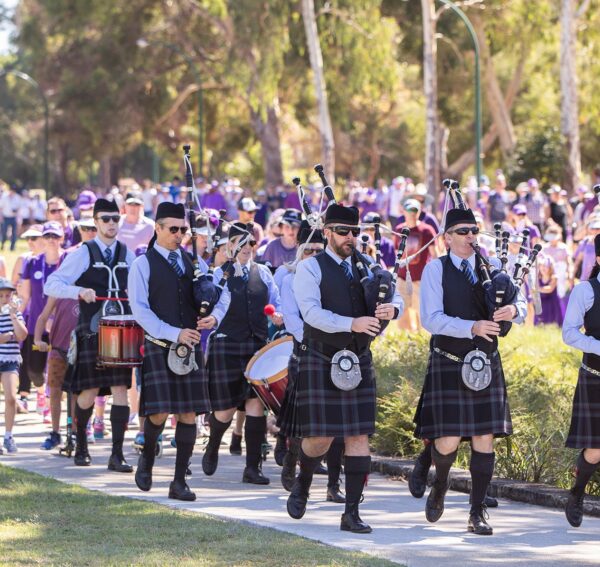QLD family share their story of managing rare epilepsy condition and ECEC needs

Three-year-old Sofi Garcia lives with a catastrophic type of epilepsy called Dravet Syndrome, something which has resulted in more than 150 ambulance trips, two intensive care stays, and more than 100 emergency room presentations in her short life.
The first report on Epilepsy in Australia by the Australian Institute of Health and Welfare(AIHW), released in March revealed that in the 12-month reporting period there were more than 20,600 emergency department presentations associated with epilepsy and around 31,400 hospitalisations.
As well as being a tremendous stressor on her and her family’s life, Sofi’s condition has meant that educators at her early childhood education and care (ECEC) service have had to work closely with Epilepsy Queensland to learn more about her condition, and how best to meet her needs while in care.
“The decision to send Sofi to Little Scholars Nerang was not an easy one,” Mum Melissa explained. “Like any other parents, we were worried about how she would manage without us, but the staff have gone above and beyond to ensure they are up to speed with what she needs.”
“We are so grateful to them for taking such great care of Sofi and it is a relief knowing she is part of the family there. She absolutely loves it.”
From a service leader perspective, the team at Little Scholars were ready to support the Garcia’s, but also wanted to make sure they had access to the best information, resources and support to care for Sofi.
They worked closely with the Epilepsy Queensland team, who upskilled the educators caring for Sofi, giving them specialised epilepsy and seizure first aid training.
“Knowing that the team had access to that specialist training helped us to feel safer about leaving Sofi in someone else’s care, and gave us space as a family to work and recharge from the demands of caring for a child with a serious condition like Dravet Syndrome,” Melissa added.
On a practical level, there are a number of situations in a typical ECEC day which could cause a seizure for Sofi, including becoming too hot, being overstimulated, being exposed to germs, or having too much sugar.
Despite the risks and challenges, the Garcia’s believe it’s important for Sofi to have access to ECEC, to make friends, to socialise, and to develop core social and emotional skills in the years before school.
“We feel comfortable leaving Sofi in the care of her educators, because of the efforts they have made to work with Epilepsy Queensland, to learn more about Sofi’s condition and how to help children just like her to be included in the early learning space,” Melissa said.
During the month of October Sofi’s dad Rafa will complete an incredible 30 sprint triathlons in 30 days as part of Epilepsy Queensland’s Walk for Epilepsy fundraiser – despite having brand new baby Bronte at home, and having never done a triathlon before – in a bid to raise $10,000.

The Walk for Epilepsy is a national virtual event, raising funds and awareness for the 1 in 25 Australians that will be diagnosed with the condition.
“We provide families like the Garcia’s, with information, education, and comprehensive support to help reduce the daily impact of this chronic condition. We do this so people with epilepsy and their families can get the most out of life,” Epilepsy Queensland CEO, Chris Dougherty said.
The Walk for Epilepsy runs from 1- 25 October 2022. For more information, or to support one of the fundraisers, please visit the dedicated website here.
Children and Seizures -Tips from Sofi’s epilepsy educators
- At least two or more seizures without a known cause (unprovoked) are generally required for a diagnosis of epilepsy.
- Children can have a seizure provoked by illness such as a cold with a temperature or ear infection etc. A single seizure does not mean they have epilepsy, however, needs a seizure first aid response.
- Seizures in children can also be provoked by fatigue and overheating.
- There are more than 70 different seizure types. It is important to know which seizure types a child experiences & how to recognise them.
- An up-to-date Epilepsy Management Plan should be developed to clearly document seizure activity (what you are looking at) and seizure first aid (and how to respond).
- Know what to look for with the child who has seizures. Blank staring, daydreaming or maybe confusion. Observe what is happening for a child. If you see something unusual- ‘say something’!
- Ensure staff have education and training regarding managing epilepsy and seizure first aid.
Epilepsy Queensland travels throughout the state to deliver education and training and also have scheduled in-house and virtual sessions (via Zoom). For more information please see here.
Popular

Quality
Practice
Provider
Research
Workforce
Honouring the quiet magic of early childhood
2025-07-11 09:15:00
by Fiona Alston

Practice
Provider
Quality
Research
Workforce
New activity booklet supports everyday conversations to keep children safe
2025-07-10 09:00:16
by Fiona Alston

Quality
Practice
Provider
Workforce
Reclaiming Joy: Why connection, curiosity and care still matter in early childhood education
2025-07-09 10:00:07
by Fiona Alston











